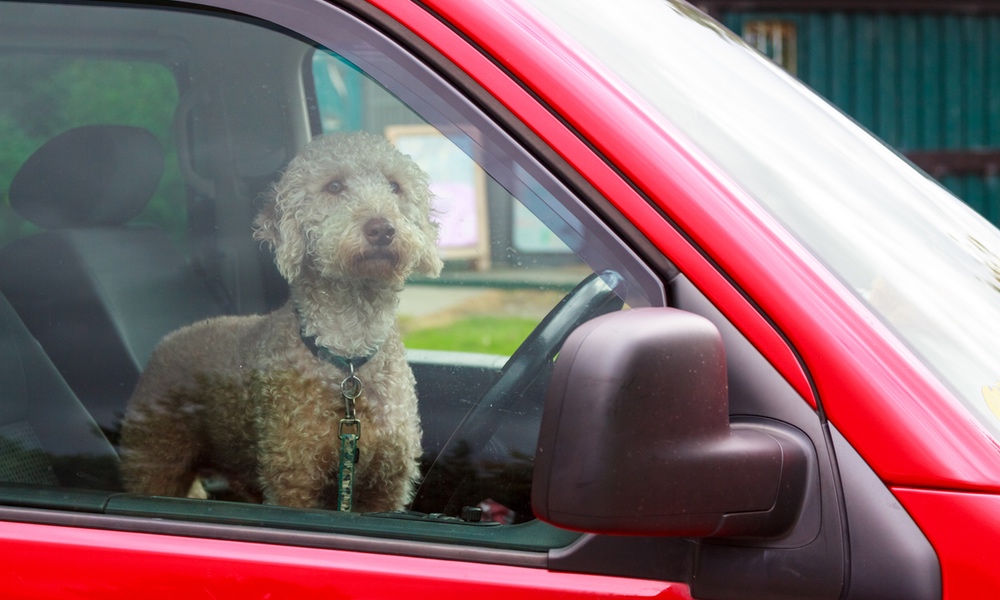In less than an hour, the temperature in your car can go from something reasonable to over 100°F, a temperature than can kill pets and children or cause lasting brain damage. This fact is too little appreciated by parents and pet owners who whether through forgetfulness or cluelessness leave their cars parked with children or pets in them. Six children have died from being left in a hot car so far this year and, unfortunately, the numbers will likely rise as summer temperatures spread throughout the country.
And the number is many times higher for pets: The American Veterinary Medical Association estimates that hundreds of pets die each year from heat exhaustion related to being left in a hot car.
Researchers at Arizona State University and the University of California at San Diego School of Medicine wanted to see how quickly interior temperatures of cars and minivans rose on a hot summer’s day. Their results help explain why children and pets have often died when left alone, either because they were forgotten or because an adult assumed they’d be safe for a brief period of time, such as during a quick trip to the store.“We've all gone back to our cars on hot days and have been barely able to touch the steering wheel. But, imagine what that would be like to a child trapped in a car seat.”
The team tested six cars: two silver mid-size sedans, two identical silver economy cars and two identical silver minivans. They tested them in both the shade and the sun on three 100° Arizona days. “These tests replicated what might happen during a shopping trip,” Selover said. “We wanted to know what the interior of each vehicle would be like after one hour, about the amount of time it would take to get groceries. I knew the temperatures would be hot, but I was surprised by the surface temperatures.”
In the sun, the temperatures in the cabin of the cars reached an average of 116° within one hour. Dashboards reached a frightening 157°, steering wheels 127° and seats 123° in this time period.
Parked in the shade, the situation was a little better, but still dangerous: Interior temperatures averaged at least 100° after one hour. Dashboards were about 118°, steering wheels 107° and seats 105°. Compact cars in general heated up faster than larger cars or minivans.
“We've all gone back to our cars on hot days and have been barely able to touch the steering wheel,” Selover said. “But, imagine what that would be like to a child trapped in a car seat. And once you introduce a person into these hot cars, they are exhaling humidity into the air. When there is more humidity in the air, a person can't cool down by sweating because sweat won't evaporate as quickly.”The temperatures inside cars parked in the sun reached an average of 116° within one hour, with dashboards hitting 157°.
Heat stroke generally occurs when a person’s body temperature reaches 104° and stays there for an extended period. But the damage caused to the organs can start before 104°. Even if a person does survive, organ and brain damage can be lasting.
Using a computer model, the team calculated it would take an hour in the sun and two hours in the shade for a two-year old's body temperature to reach 104°. The study is designed to make us aware of just how quickly and how hot parked cars become, particularly in the summer, and the serious dangers of leaving a child — or pet — alone in a hot car.
The study is published in the journal Temperature.





